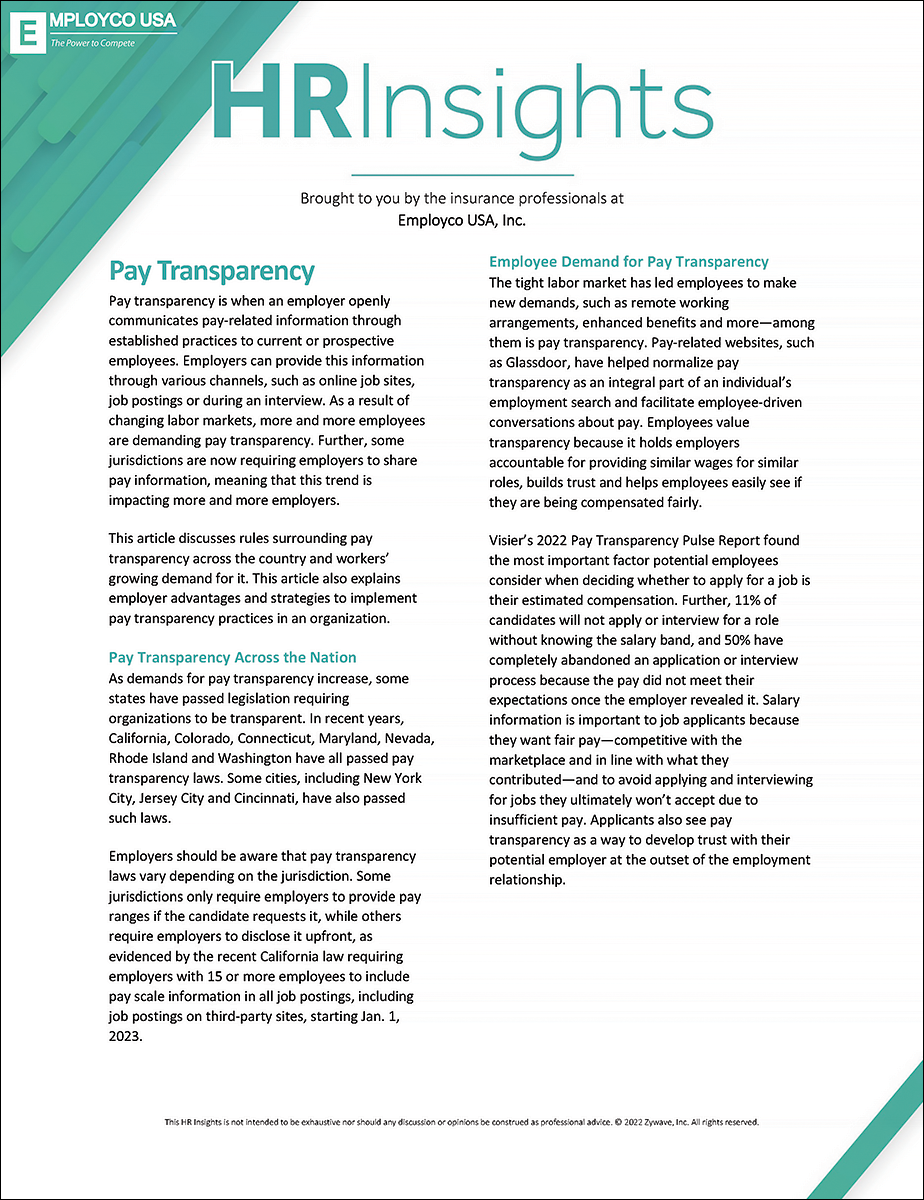
Pay transparency is when an employer openly communicates pay-related information through established practices to current or prospective employees. Employers can provide this information through various channels, such as online job sites, job postings, or during an interview. As a result of changing labor markets, more and more employees are demanding pay transparency. Further, some jurisdictions are now requiring employers to share pay information, meaning that this trend is impacting more and more employers.
Pay Transparency Across the Nation – As demands for pay transparency increase, some states have passed legislation requiring organizations to be transparent. In recent years, California, Colorado, Connecticut, Maryland, Nevada, Rhode Island, and Washington have all passed pay transparency laws. Some cities, including New York City, Jersey City, and Cincinnati, have also passed such laws.
Employers should be aware that pay transparency laws vary depending on the jurisdiction. Some jurisdictions only require employers to provide pay ranges if the candidate requests it, while others require employers to disclose it upfront, as evidenced by the recent California law requiring employers with 15 or more employees to include pay scale information in all job postings, including job postings on third-party sites, starting Jan. 1, 2023.
Click on the following link to read the entire Pay Transparency article that discusses rules surrounding pay transparency across the country and workers’ growing demand for it. The article also explains employer advantages and strategies to implement pay transparency practices in an organization.
